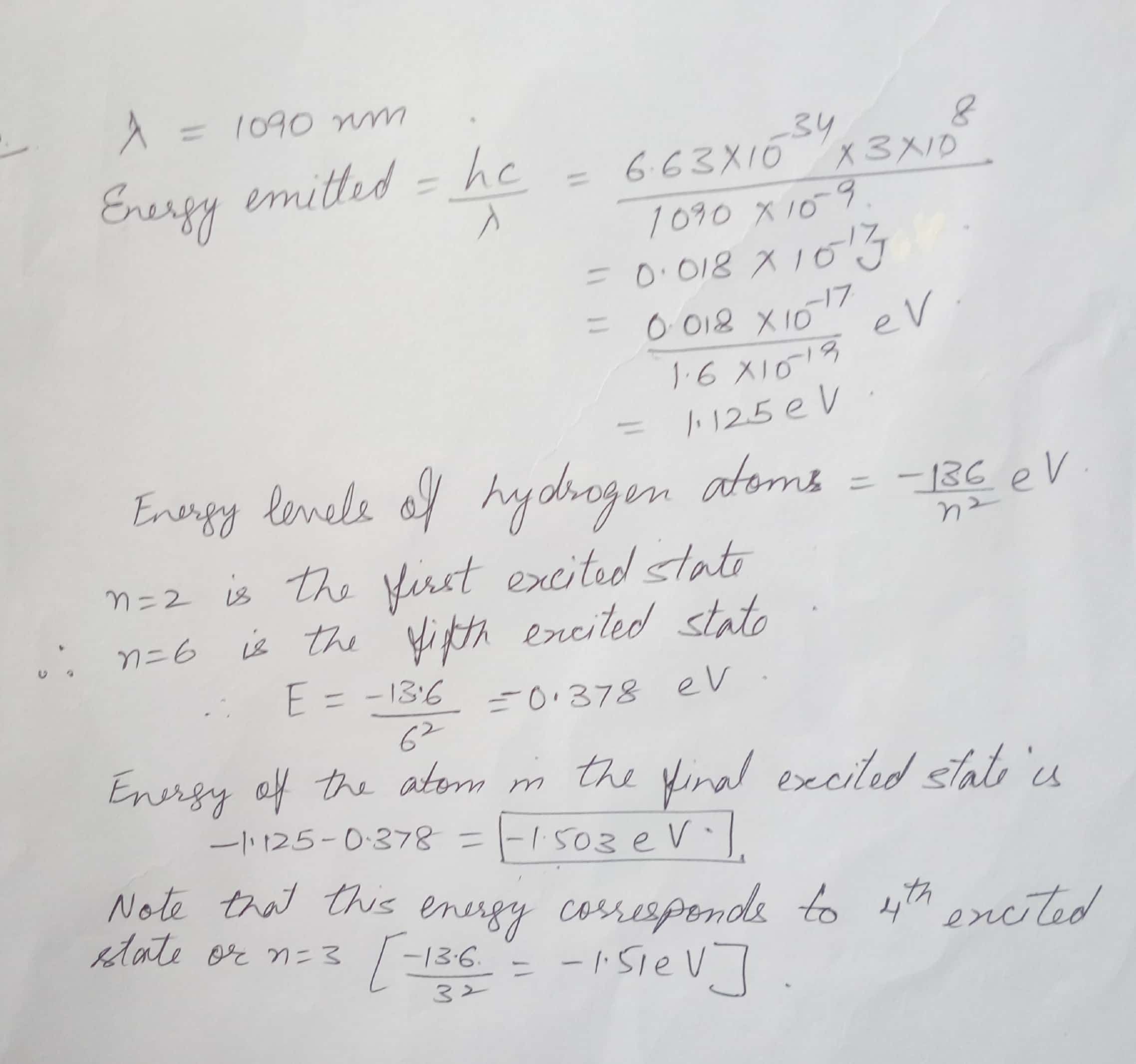Physics Modern Physics Level: High School
Radioactivity
A particle radioisotope has a half-life of 23.4 hours . At time t = 0, the activity is 6.90 x 10^9 Bq . Calculate the following .a) The activity when t = 23.4 hours .
b) The time when activity will be reduced by a factor of 100 .
c) The value of the decay constant .
d) The original number of radioactive nuclei .
e) The number of radioactive nuclei at t = 23.4 hours .

Physics Modern Physics Level: High School
Dual Nature
An incident x ray is Compton scattered by a free electron at an angle of 35 degree . A high purity germanium detector is used to detect the scattered x-ray . The detector indicates that the energy of the scattered x ray is 65 keV . What is the energy of the incident x-ray ?
Physics Modern Physics Level: High School
Bohr's Atomic Model
A hydrogen atom is in the fifth excited state when it emits a photon with a wavelength of 1090 nm . Note than n = 2 is the first excited state . Calculate the energy of the atom in the final state .

Physics Modern Physics Level: High School
Radioactivity
How much time is required before a 10 mCi sample of 99mTc (t ½ = 6.0 hours) and a 25 mCi sample of 113m In (t ½ = 1.7 hours ) possess equal activities ?
Physics Modern Physics Level: High School
Nucleus
The half-life of carbon-14 is 5730 years . The time for ¾ of a sample of carbon-14 to decay isa) 350 years
b) 2865 years
c) 11460 years
d) 17190 years
e) none of the above

Physics Modern Physics Level: High School
Nucleus
The mass of an atom of helium-4(Z=2) is less than the mass of two free protons and two free neutrons because of ?a) nuclear fusion
b) nuclear fission
c) neutron
d) nuclear emission
e) binding energy
Physics Modern Physics Level: High School
Nucleus
When radium-223 (Z=88) decays to radon-219 (Z=86) , the other particle emitted is a(n)a) alpha particle
b) beta particle
c) gamma ray
d) x-ray
e) none of the above

Physics Modern Physics Level: High School
Nucleus
Radioactive decay is involved in which of the following ?a) Keeping of the Earth’s interior hot
b) Making smoke detectors work
c) Supplying energy for interplanetary space
d) Making the sun shine
Physics Modern Physics Level: High School
Nucleus
How do isotopes of a given element differ ?a) They have different mass numbers
b) They have different electron numbers
c) They have different atomic numbers
d) They have different quantum
e) None of the above
Physics Modern Physics Level: High School
The continuous part of an x-ray spectrum of an atom occurs becausea) of the photon absorption
b) of the photoelectric effect
c) electrons in the atom make transitions to lower energy
d) of the uncertainty principle
e) of rapid deceleration of the bombarding electrons
Physics Modern Physics Level: High School
Photoelectric effect
When the frequency of light is decreased in a photoelectric effect , the energy of the emitted electronsa) increase
b) decrease
c) stays the same
d) becomes more quantized
e) become less quantized

Physics Modern Physics Level: High School
Atom
The highest energy level in an atom is itsa) ionization level
b) emission level
c) absorption level
d) photon level
e) ground state
Physics Modern Physics Level: High School
Duel nature
The fact that a particly cannot be precisely localized is the ?a) photoelectric effect
b) uncertainty principle
c) principle of a hologram
d) principle of a laser
Physics Modern Physics Level: High School
Atom
An excited atom gains energy by ?a) emitting a photon
b) absorbing a photon
c) undergoing a photoelectric effect
d) increasing its de Broglie wavelength
e) the uncertainty principle
